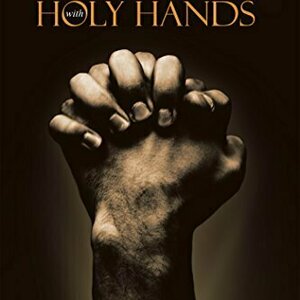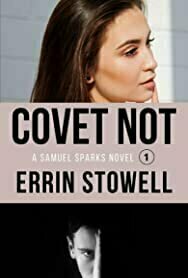MaryAnn (14 KP) rated Warriors with Holy Hands in Books
Nov 4, 2019
Searching through diaries and records, Ruth discovers blood relatives and others who lived far away over the course of a century. We follow their lives across three generations culminating in the revelation of indisputable connections that are createdwords and actions with lasting results.
Ruth learns that a curse spoken by one ancestor may have had a devastating domino effect, one whose beginning also engaged her prayer-warrior grandmother in a pitched spiritual battle to break. A challenged believer herself, Ruth grows in the faith of her predecessors who faced ominous situations.
The rich symbolism of Judaism provides a backdrop for the saga with traditions and meaning sprinkled throughout the story.
When she faces increasing paralysis, Ruth and a birth friend in the faith journey to the Southern Highlands of Tennessee where it all began. Here in the span of seven daysover ten monthsall that has unraveled in recent years comes together. Life as she knows it will never be the same.
God reveals himself to Ruth and others in remarkable ways along a tortuous path that comes full circle.
Warriors is a mystery that is finally, stunningly, revealed as serendipitous fruit from the branches of a family tree. It is a story of encouragement and life that empowers those who seek God and believe.
My Thoughts: This is a story about Ruth, a woman who is injured while deployed. As she recovers from her injuries, including PTSD and other physical injuries, she learns about her past through journals that her aunt gave to her. The author has done a skillful job of intertwining the history from the journals to the present time to Ruth. The author Peter Toeg, presents us with a good picture of how we can be affected by our past relatives whether it's good or bad.
I love history and journals. We cal learn so much through our past. This is a story about healing, both physically and of course, spiritually. The author has done a brilliant job with this storyline and I believe that others will enjoy this book also.

Back in Time
Education and Book
App
• "The coolest history textbook you’ll find on the iPad" - The New York Times • Winner of the...

Ookii Squiggles by Baby First & Lazoo
Education and Entertainment
App
It’s okay to color outside the lines! No one is too young (or too old!) to create! Join Ookii,...

Little Fox Animated Stories & Songs for Kids
Education and Book
App
Download the Little Fox app, and enjoy 300 animated stories and songs that are available for FREE....

CM TOEIC® MASTER
Education and Reference
App
CM TOEIC® MASTER is an application for TOEIC® testers who desire to prepare for taking TOEIC®...

Back in Time for iPhone
Education and Book
App
• "...a beautifully executed lesson on the history of the universe" - The New York Times •...
An Introduction to Non-Perturbative Foundations of Quantum Field Theory
Book
Quantum Field Theory (QFT) has proved to be the most useful strategy for the description of...

Flashlight 4 in 1
Utilities and Lifestyle
App
Flashlight - 4 in 1. Flashlight, Strobe, Morse Code, Lighted Magnifier is the most versatile...

CookPix, my own visual cookbook
Food & Drink and Utilities
App
Appetite comes with watching. CookPix lets your create your own digital recipe photo book on the...
If this sounds like a synopsis for a John Grisham novel, you wouldn't be far off because Stowell has the potential to be the next one. This is only the first novel I've read by Stowell, but the one thing I noticed mostly in this story was the amount of inconsistencies and amateur writing mistakes; with better editing and consistency, his books could very well hit mainstream.
Also, Covet Not had so many chapters, so much so that scenes were chopped in half and made into entirely new chapters. The book ended up having 48 chapters within 158 pages. This amount could have easily been shortened and helped with the flow of the story if Stowell had just continued onwards with scenes rather then cutting them short or just skipping parts completely.
The novel starts with a man called Skinny who is enjoying his growing infamy on the dark web (he records himself murdering women then uploads it for his audience to enjoy). Here is how Stowell describes Skinny's thought process:
" Skinny took a black ski mask from the duffel bag and put it on before carrying the bag into the camera's frame and placing it near the woman. He began unpacking other items from the bag. It was slow work, deliberately slow for the camera. Skinny intended to have a before and after view for each tool. It was important to show the proper use of tools. The viewers always appreciated that. "
When we switch over to Sparks, we find him after a long day of work, speaking with a journalist named Gina, his fiancee, who is telling him one of her co-workers stole her story, but no one has heard from her in two days. Yet, they both agree that she's probably holed up with one of the producers, and instead, get into a small argument about Sparks never supporting Gina - - - a constant habit of arguing is almost every interaction between the two throughout the entire novel.
Soon after, Sparks introduces us to his uncle Jimmy, who is being housed at a retirement home: " The old man was seated in a wheelchair; his left leg had been amputated just below the knee a few years before, the result of allowing an ingrown toenail to fester to gangrene. Jimmy's barrel chest and solid upper body contrasted with his wasting legs. "
As Sparks continues to visit his uncle in the retirement home, he keeps running into a cute nurse named Darlene, who quickly sets her sights on him. She goes so far out of her way to get Sparks and Gina to separate that she sends him nude photos of herself from a burner phone. Fortunately, Sparks has bigger fish to fry when he hears over his car radio that Gina's co-worker was now being treated as a missing person case, causing Sparks to quickly jump to the conclusion that Gina possibly was responsible for it.
However, Stowell throws in an expected curveball by making our villain, Skinny, work at the retirement home. When he comes in to take care of a patient while Sparks is present, it's too easy to guess that this patient was going to end up dead soon. Sparks, expectedly, has a bad feeling about this male nurse, but dismisses it and believes that the patient died by natural causes. Life goes on.
Stowell's novel, with a great plot, was just too focused on ending the story, that after page 50, it seemed as if Stowell didn't care what happened to these characters, just as long as he finished the book. At one point, readers are told that Sparks doesn't drink alcohol, but it's never explained why he doesn't which would have given a bite of character development; another scene, Sparks finds a phone, but doesn't want to give it to police, instead he states that he has a 'friend' in the police department who can go through it as a favor, but this 'friend' is completely forgotten, as if Sparks never mentioned him, and the former is left dumbfounded as to how to get into the phone.
There's a story here and characters that could be more well-rounded, but I honestly found myself not caring the least bit about any of the characters' well-being, especially Sparks - - - someone who comes off as inept, someone who has to be told what to do in order for anything to get done - - - he's like a lost child running blindly throughout the book. The story needs to be longer with more emphasis given to mundane scenes that will allow readers to chew on a piece of Sparks' daily life because, by the end of the book, we needed a full picture of every major character, not a Jackson Pollock.


